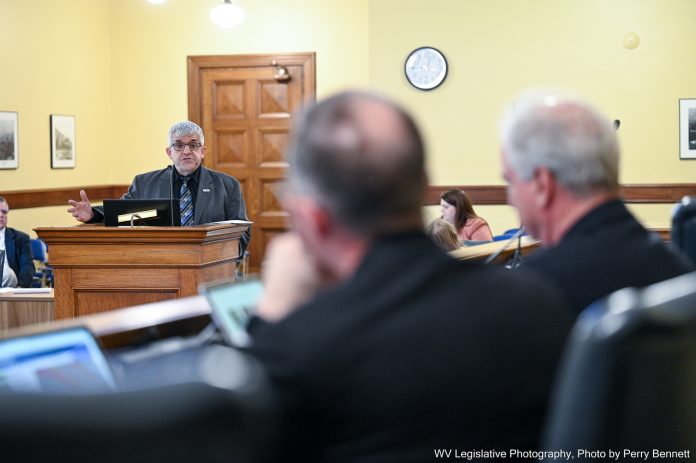Lawmakers received an update Sunday afternoon regarding West Virginia’s plans to secure federal disaster relief funding in response to this month’s tornadoes and flooding that have significantly impacted much of the state.
State Emergency Division Deputy Director Matthew Blackwood gave the update to members of the Joint Legislative Committee on Flooding to kickoff April’s interim legislative meetings.
Blackwood informed committee members that 741 completed damage assessment surveys indicated 24 destroyed homes, with 58 reports of major impacts and 268 reports of minor impacts from what he referred to as a “wind event” for April 2 through April 5.
Blackwood noted that the wind event caused more personal property damage than the flooding that hit the state the following week, with floodwaters inflicting more damage on infrastructure.
According to Blackwood, state officials and federal partners will look at properties categorized as “destroyed” or majorly impacted by the wind event to determine whether federal officials agree with those assessments with an eye toward a presidential disaster declaration later that would unlock individual assistance.
The Federal Emergency Management Agency’s Individual Assistance program offers benefits to survivors that can include home repair and replacement for for primary residences, as well as financial support for uninsured or under insured personal property losses.
Blackwood noted that FEMA Individual Assistance was approved five months after August 2023 storms caused flooding and landslides for residents of Boone, Calhoun, Clay, Harrison and Kanawha counties following a presidential disaster declaration.
FEMA distributed just over $2.25 million to individual homeowners according to Blackwood, noting that a declaration allowing Public Assistance support came a little over a month later.
Blackwood reported West Virginia was awarded $10 million to support hazard mitigation, but he cautioned that the funding will only be available to residential property owners with current FEMA National Flood Insurance Program policies. According to Blackwood, as of last year in West Virginia, only 12 percent of residential properties in Special Flood Hazard Areas had such a policy.

